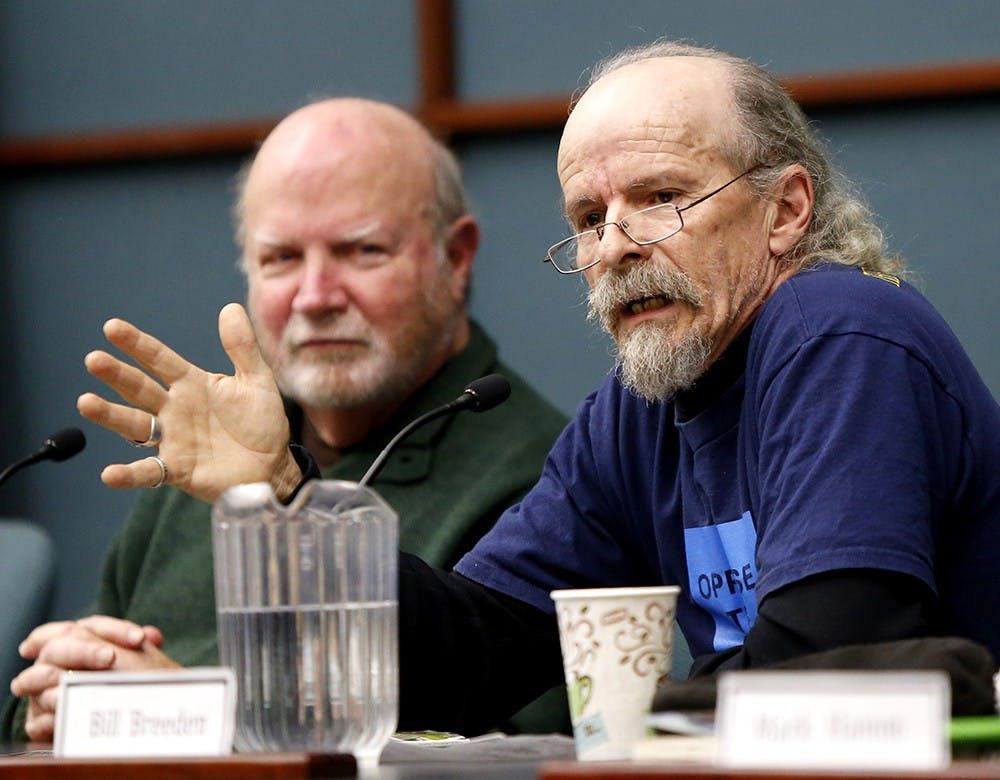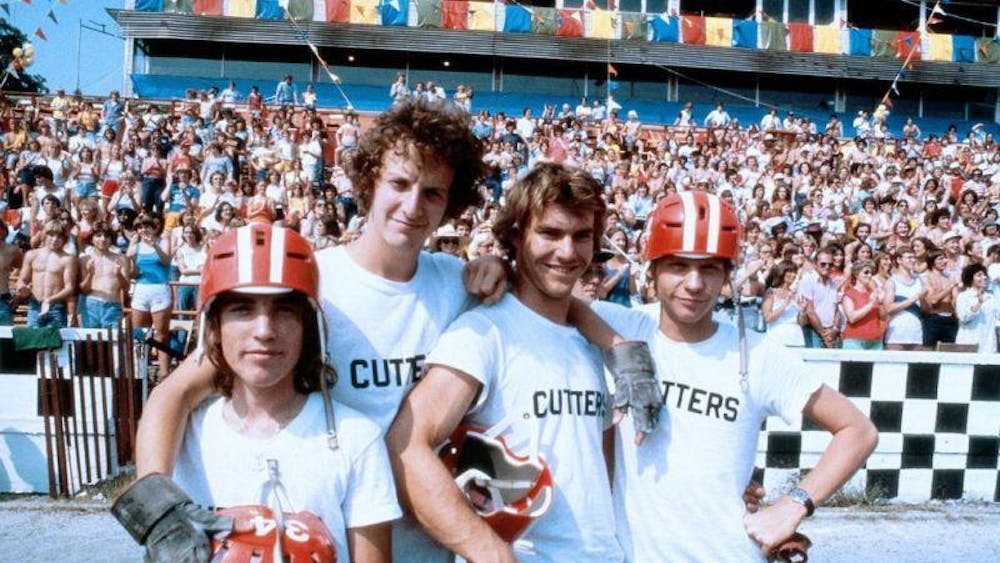Mark Hamm, a professor of criminology at Indiana State University, was the first speaker. He said he’d worked in Folsom Prison — the same prison Johnny Cash sang about in 1955 — and studied the radicalization of religion and inmates in the prison. He spoke about Johnny Cash first and brought up an image of him on PowerPoint. In the picture, Cash and Richard Nixon are in the middle of a conversation.
“Cash was probably the most successful prison reformer of the sixties,” Hamm said. “He was able to talk to Nixon about inmate treatment, suicides and reform.”
But Folsom Prison is now much different than it was in the 1960s. With a picture, Hamm showed the audience how overcrowded the prison is, as cots had been set up in open spaces to accommodate inmates who couldn’t be given a cell. Hamm used the same photo to point out a divide.
“They’re divided by race,” Hamm said. “The guards do it that way because they think it will be easier to handle people. Race separates the inmates like train tracks demarcate a town.”
Hamm also said prisoners sometimes started variations of religions — Islam, in particular.
“They get copy-and-paste Qurans,” Hamm said. “They create a gang mentality. It’s prison Islam. Prison is a great place to create terrorists.”
He listed individuals who had become radicalized in prison: the original ISIS founders and the Paris bombers, among others.
But Alex Lichtenstein, associate professor in the history department, said it wasn’t just Islam that has growing rates of radicalization. He said white terrorists groups were a threat as well, a result of a system tailored to favor one race instead of another. He used the modern day heroin epidemic as an example.
“When there was a crack epidemic, it was called a crime problem,” Lichtenstein said. “Now there’s a heroin epidemic and it’s being treated as a health problem.”
The difference between the two issues was race, he said. The stereotype was primarily African-Americans smoked crack, and they were imprisoned accordingly. Lichtenstein said the heroin epidemic concerned many white people and is being treated as a health issue.
“As far as my research has shown, black and white people use drugs at about the same rate,” Lichtenstein said.
Judge Mary Ellen Diekhoff said she has direct experience working with people troubled by drugs. She works on the Drug Court Team as the presiding judge and said Monroe County treats people differently than other places in Indiana.
“We incarcerate last,” Diekhoff said. “Reform, not incarcerate. We actually lose money from the Department of Corrections.”
People in her court work to change their surroundings, habits and lives to allow them to remain sober. Diekhoff said the community supports the Drug Court’s measures, but she said she’s seen people act “snobby” toward individuals and the program.
Bill Breeden, a retired Unitarian Universalist minister, said he hoped people would take what they learned and use it for the greater good.
“I hope the issues raised here tonight will cause you to think, cause you to act and cause you to cry out for justice,” Breeden said. “We are a better people than to design a system like this.”






